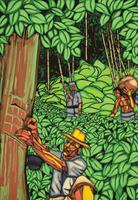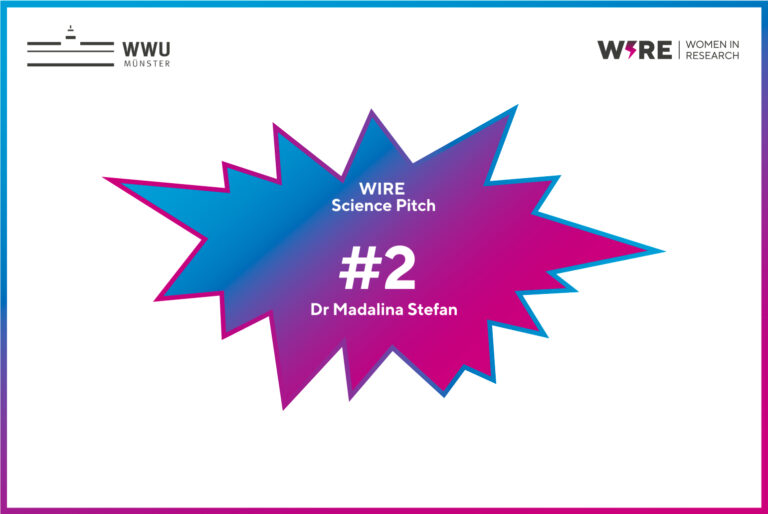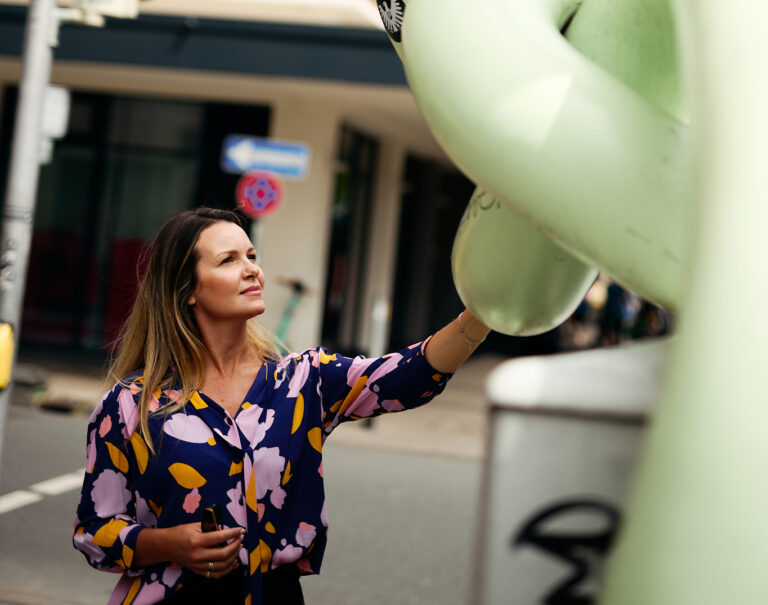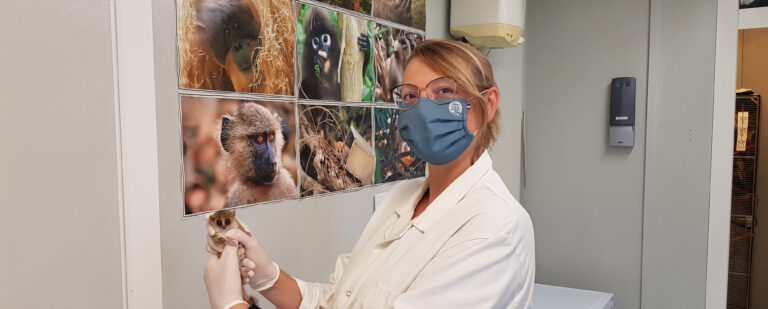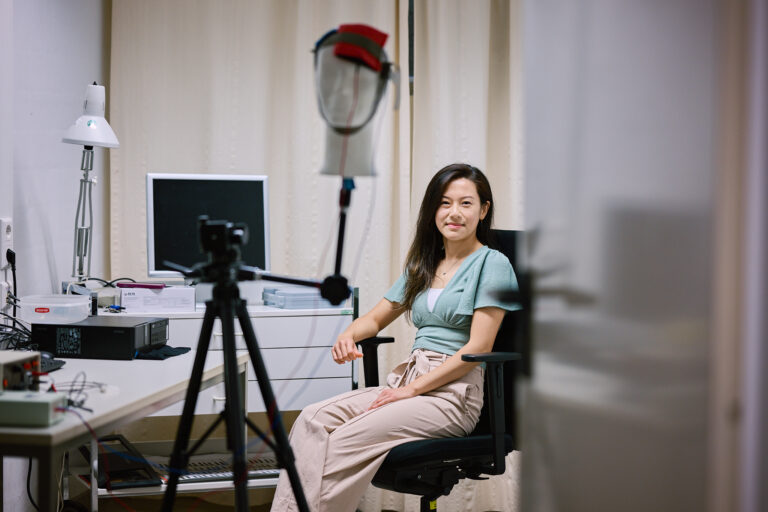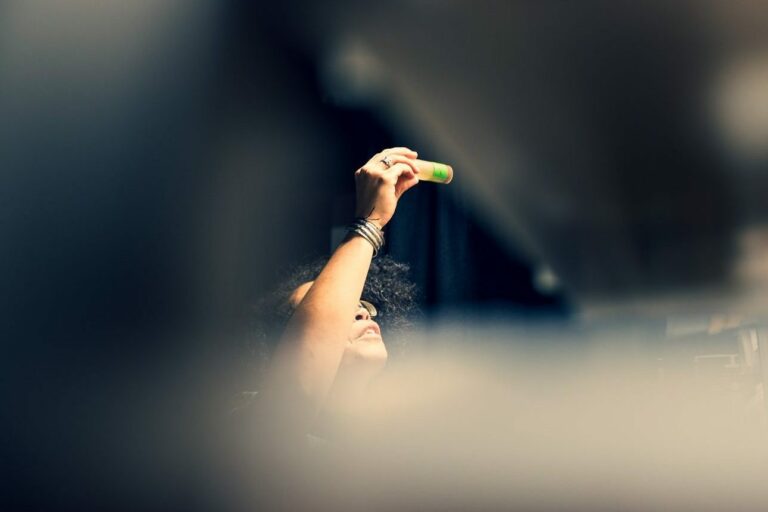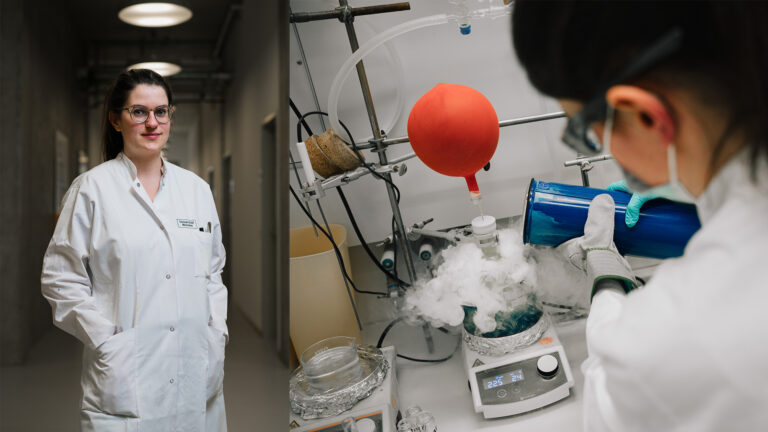
Dr. Madalina Stefan: Literary, Film and Cultural Studies Are “The World in a Nutshell”
In the series “33 questions” we introduce, in no particular order, our WiRe Fellows who are currently working on a research project here at the University of Münster. Why 33? Well, if we think of the rush hour of life, it is kind of the age that lies in its middle. And we also like the number😉.
In today’s episode we are speaking with Dr. Madalina Stefan: Film, Literature and Cultural Studies Scholar, compulsive reader, highly addicted to theory, and movie junkie, passionate about publishing on Accented Cinema and deeply in love with nature narratives.

1. What motivated you to work in the field of literary, film and cultural studies?
It’s the world in a nutshell, the infinite space.
2. Describe your daily work in three words.
Read, think, write.
3. Describe your research topic in three words.
Gender and postcolonialism in nature narratives.
4. A good literary scholar needs…?
Passion and patience.
5. What is the best experience you have had as a scientist/researcher?
Right now I would say WiRe! 🙂
6. If time and money were no object: Which research project would you like to do?
I would love to do research on nature narratives in literature and film from a comparative, diachronic perspective with focus on the global North-South divide.
7. What is your favorite research discipline other than your own?
Ecology.
8. What do you consider the greatest achievement in the history of science / your field?
Well, superlatives are complicated. But Aristotle’s Poetics is a major contribution, that’s for sure!
9. Which experience in the world of science disappointed you most?
When I found out that my course on Spanish Literature had been assigned to my colleague Pablo, who I was helping to prepare his first course while he actually was preparing mine (without telling me).
10. What was the funniest moment you had in science?
Voice training at the UPF with my colleague Mihaela Vancea.
11. How did you survive your PhD time?
Who says I did?
12. What direct or indirect relevance does your research have for society?
Narration is fundamental to all of us. Who we are and the world we inhabit is determined by our narrations and in the context of climate change there is an urgency to reflect on how nature and gender are narrated in our completely medicalized, patriarchal societies.
13. How did you imagine the life of a scientist / researcher when you were a high school student?
I imagined it like my uncle Paul Miron’s life, who was professor of Romanian Studies at the Albert-Ludwigs-Universität Freiburg.
14. Is it actually different? In what way?
Yes, it is different. In the first place because I am a woman.
15. What do you like most about the »lifestyle« of a scientist? And what least of it?
What I love about it is that it offers the chance of lifelong learning. The aspect I least like is that it is difficult to reconcile with having a family.
16. If you had a daughter, what would you advise her not to do?
To believe that she has to act or think in a specific way. But the same goes for all children, regardless of their gender.
17. What is the biggest challenge for you when it comes to balancing family and career?
From my experience I would say mobility is a big challenge.
18. How often do you as a friend / partner / mother / daughter feel guilty when you have to meet a deadline again?
Often, but somehow I manage to get along.
19. How did you imagine your future as a child? What profession did you want to pursue?
I wanted to become a lawyer and fight the injustices of the world.
20. How do you keep your head clear when you are stressed?
Before Covid-19 it was wheel throwing for me. Nowadays I sleep and take long walks to unwind.
21. What is your favorite German word?
It is definitely “Dasein”
But I also love “Vorfreude”!
22. What makes you most happy about the world?
Compassion, nature and humor.
23. What or who inspired you to become a humanities scholar?
It was my grandmother Elisabeta. She was one of the first women to study in Romania and it was her who enrolled me at the German Kindergarten in Bucharest, read Mihai Eminescu to me, took me to Günter Grass Blechtrommel at the theatre, visited exhibitions to see Corneliu Baba’s paintings and played Schubert’s Impromptus to me while I was growing up under a communist dictatorship where all these things were not precisely appreciated. Today she is 97 years old and since she has always supported the idea of women in academia she is extraordinarily enthusiastic about the WiRe fellowship.
24. Which of your traits bothers you the most in your daily work?
I use to get carried away by my curiosity, passion and enthusiasm, which often leads to a tremendous work overload.
25. What worries you most about the world?
Consumerism, envy and inveterate hatred.
26. Your favourite TV series?
Wild, Wild Country.
27. Which hobby have you given up for a life in academia?
Swimming and drawing.
28. If you could travel in time: in which epoch and at which discovery or event would you have liked to have been there?
Alexander von Humboldt’s travel to the Americas / The European discovery of Cipango.
29. What are the advantages and disadvantages of doing a Research@home-WiRe-fellowship?
The great advantage of WiRe is that it takes into account the gender gap. Nowadays, especially with the set back of gender equality due to the pandemic Covid- 19, this is crucial for female academics. And it is not just hot air, but the program keeps it’s promise. Run by people who, based on their own experience, understand the situation of the fellows, you are met with a great deal of understanding and support; even meetings are organized according to Kita and school schedules.
30. What is your favourite place to relax from research during Corona?
During the first lockdown it used to be right under the tree that grows in front of my balcony.
31. What is your favorite place in Münster?
On the bike 🙂
32. What surprised you most about the University of Münster?
The historical buildings.
33. What is the biggest difference between the academic system you have last done research in and the academic system as you experience it in Münster / Germany?
From my point of view there couldn’t be a bigger difference between the Spanish and the German University system. I would start by pointing out recruitment through public job offers, decent salaries, high quality teaching, respect, research opportunities and above all Bachelor and Master degrees that are affordable to students.

